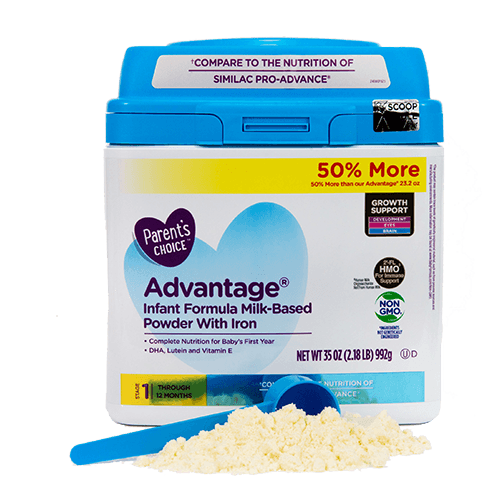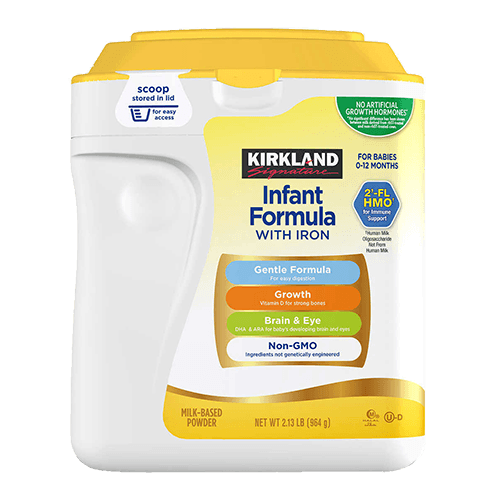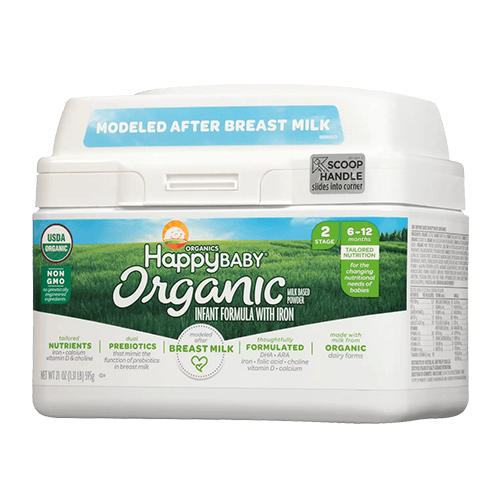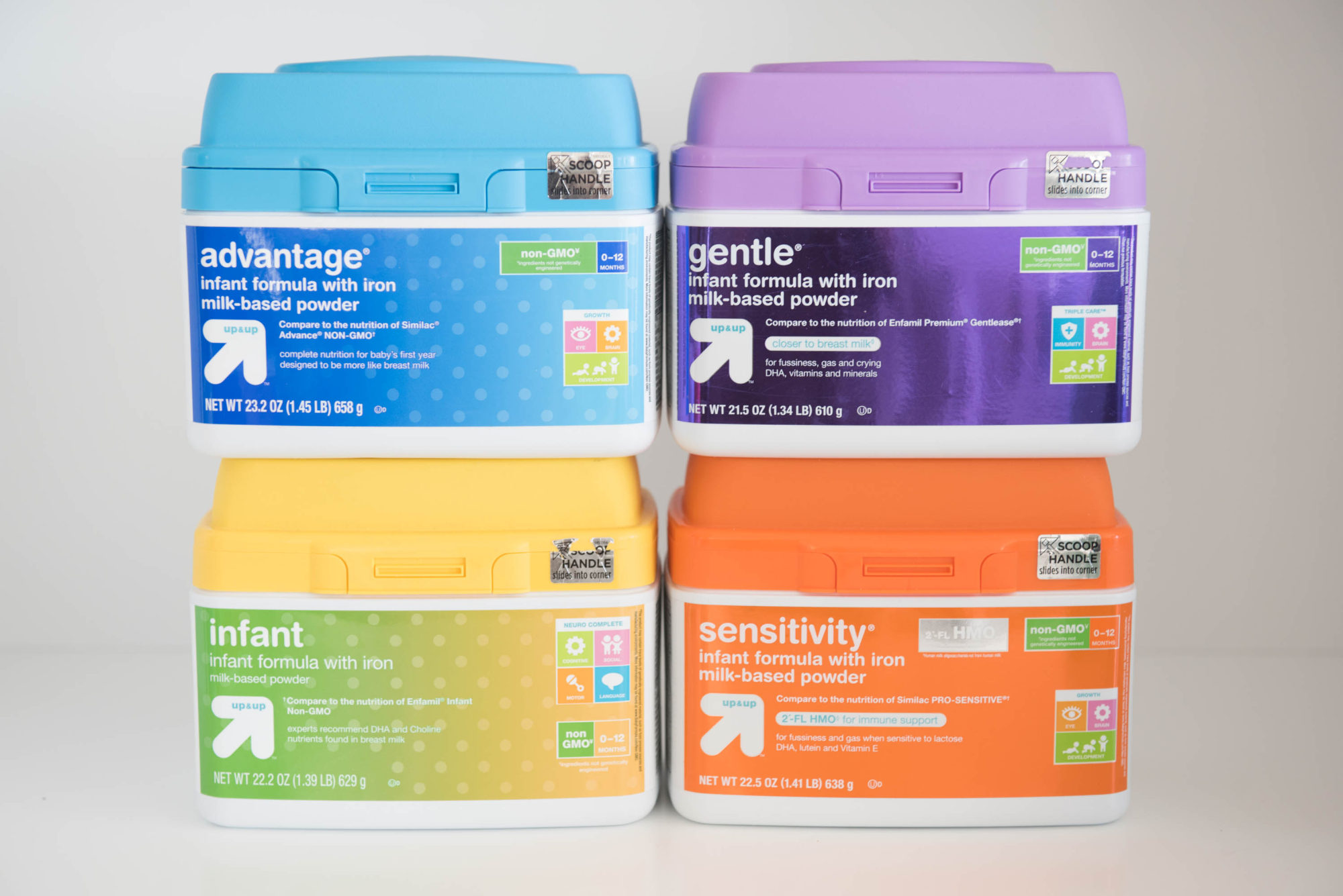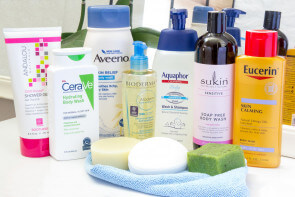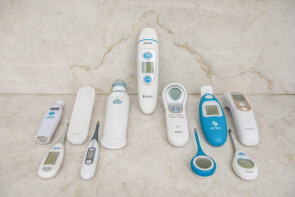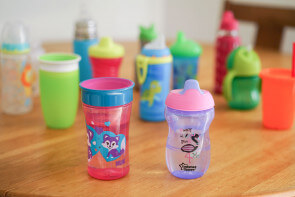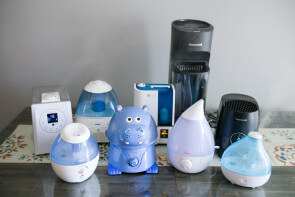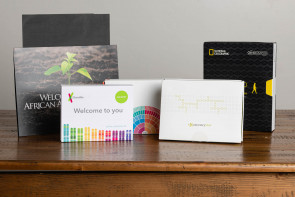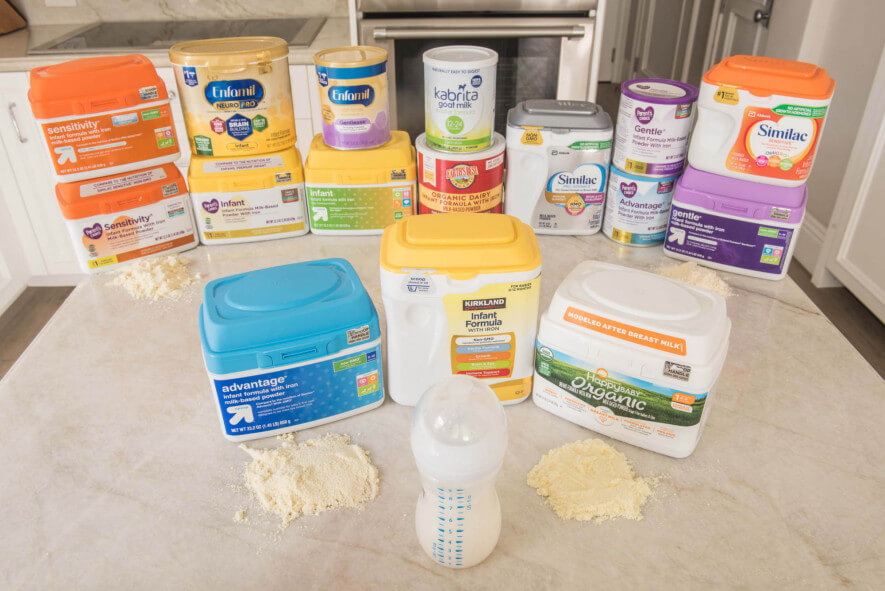
The Best Baby Formula
After three months of comparing the options, we found that all formula is made to the same government-regulated standards. The best baby formula to start with is the brand that’s easiest to buy: Parent’s Choice – Advantage is one of the seven formulations from this brand that covers almost every dietary need, and it’s the least-expensive formula. If you want to skip controversial palm oil ingredients, Kirkland Signature Infant Formula is also a good buy, and it’s probably made on the same line as premium formula that costs double the price.
Note: If you’re making a major change like switching formula types to alleviate gas or constipation, talk to your pediatrician to get specific advice.
Table of contents
- How we selected products to test
- Compare the best baby formulas
- Important ingredients to consider
- Who makes baby formula
- Best infant formula: Parent’s Choice
- Palm-oil-free runner up: Kirkland Signature
- The best organic baby formula – Happy Baby
- The other finalists we tested
- The bottom line
How we selected products to test
For insight into the process other parents have gone through when selecting formula, we talked with three sets of parents from various walks of life to see what formula their babies liked best. We found that most parents can’t decipher the differences between formulations, much less understand why some work better for their babies.
We boned up on the background of infant nutrition with detailed guidance from Dr. Bridget Young and Dr. William Sears, two experts whose guides are linked all over parenting blogs and discussion groups. We had hoped to get a more concrete set of criteria from the experts, but we found out that even the researchers can’t point to one specific set of ingredients that will make the perfect formula for everyone.
We researched the manufacturers of formula to see if there was anything notable about specific standards or practices. The US Food and Drug Administration imposes stringent regulations on ingredients, but we did find a few common variations that are discussed below.
Our final selections were based on price, availability, and a comparison of ingredients lists to find a full range of options that can satisfy even the compulsive label-readers among our friends and family.
Compare the best baby formulas
| Formula | Avg. Dollars Per Ounce | Manufacturer | Extra Calories From: | Palm-Oil Free? |
|---|---|---|---|---|
| 1. Parent’s Choice - Advantage Infant Formula | 0.50 | Perrigo | Lactose | No |
| 2. Parent’s Choice - Infant | 0.50 | Perrigo | Lactose | No |
| 3. Kirkland Signature - Infant Formula | 0.56 | Abbot? | Lactose | Yes |
| 4. Up & Up - Advantage Infant Formula | 0.63 | Perrigo | Lactose | No |
| 5. Up & Up - Infant | 0.63 | Perrigo | Lactose | No |
| 6. Similac - Pro Advance | 1.18 | Abbot | Lactose | Yes |
| 7. Enfamil - With NeuroPro | 1.29 | Mead Johnson | Lactose | No |
| Partially Hydrolysed "Gentle" Formula | ||||
| 8. Parent’s Choice - Sensitivity | 0.62 | Perrigo | Corn syrup | No |
| 9. Parent’s Choice - Gentle | 0.62 | Perrigo | Corn syrup | No |
| 10. Up & Up - Sensitivity | 0.73 | Perrigo | Corn syrup | No |
| 11. Up & Up - Gentle | 0.73 | Perrigo | Corn syrup | No |
| 12. Similac - Pro Sensitive | 1.39 | Abbot | Corn syrup | Yes |
| 13. Enfamil - Gentlease | 1.31 | Mead Johnson | Corn syrup | No |
| Certified Organic | ||||
| 14. Happy Baby - Organic Infant Formula | 1.12 | Perrigo | Lactose | No |
| 15. Earth's Best - Organic Dairy Infant Formula | 1.08 | Perrigo | Lactose | No |
| Goat Milk Toddler Formula | ||||
| 16. Kabrita - Toddler | 1.13 | Kabrita | Lactose | Beta-palmitate |
Important ingredients to consider
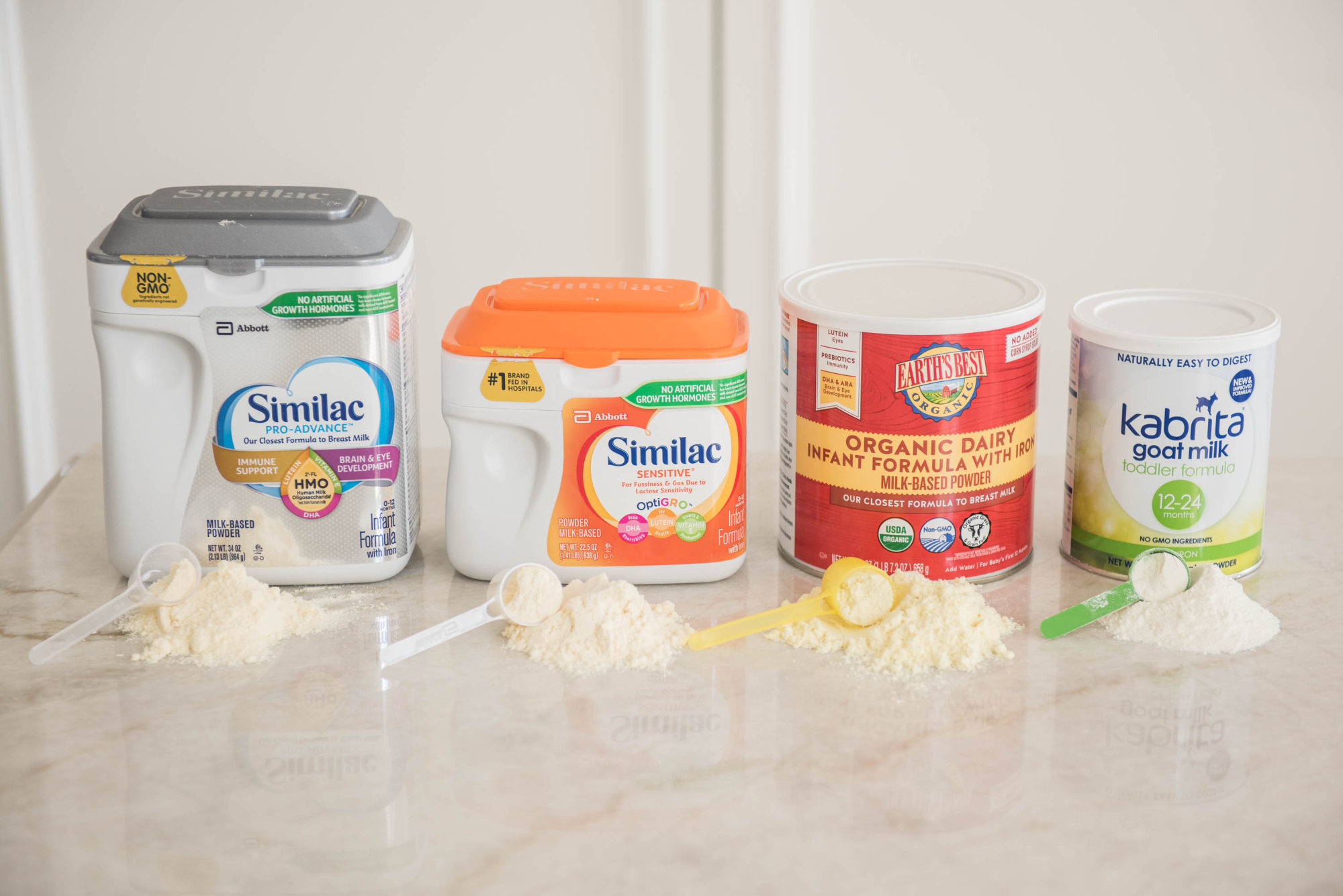
What’s in your baby’s formula is the subject of a government-regulated standard, the Food and Drug Administration’s Infant Formula Act (“IFA”). Just as with most nutritional guidelines, dieticians and researchers have worked to define the minimum and maximum amounts of basic nutrients, vitamins and minerals that go into a product.
The IFA requires manufacturers to register and test any infant formula that’s brought to market and also regulates quality standards, including a procedure for issuing recalls. All infant formula legally sold in the U.S. meets the IFA standards.
Water
OK, this isn’t a nutrient or ingredient in dry formula, but babies get all of the water they need from the milk or formula you give them.
Tap water from a city supply system is — generally speaking — just as safe as bottled water, but neither is sterile. Parents are advised to boil water before mixing up a bottle of formula to eliminate any risk of bacterial or viral exposure, even when using bottled water. If you have any doubts about lead in your pipes or other low-level sources of contaminants in your water, check out our faucet water filter and water filter pitcher reviews for alternatives to bottled water.
Carbohydrates
Sugar, in one form or another, is the main ingredient in milk. The average 100 milliliters of breast milk has between 5 and 8 grams of sugar. Lactose is sugar, though it’s digested differently than the glucose and fructose we harvest from plants.
Most of the popular formula brands use only lactose to add enough calories (about double what you get from cow milk) for growing babies. In a few cases corn syrup is added instead of extra lactose. If your baby can’t digest lactose, you will need a formula that specifically lists lactose-free ingredients like soy protein instead of “milk”.
Fat
The next ingredient on the list is fat, at 3.8 grams per average 100 mL of breast milk. Most fat in baby formula is from plant oils: Typically, that includes saturated fats from palm oil and a lighter type like sunflower oil blended in ratios that resemble the fat in breast milk.
Some research suggests that the way palm-oil fats is structured can cause complications in digestion, specifically because palm-oil fats can bind to calcium and make it indigestible. Dr. Young says in her formula guide that manufacturers usually make up for that with extra calcium, so fat types are lowest on her priorities. Kabrita has a neat explainer on palm oil if you want more details, but remember that it’s an advertisement.
If you’ve got a pre-term baby who hasn’t developed full bone density, you’ll probably want to use a formula like Similac or Kirkland Signature that doesn’t rely on palm oil.
Protein
Protein is the least-significant nutrient in milk by weight, at only 1.3 grams for 100 mL. Protein usually comes from cow-milk whey.
Protein is usually the trickiest nutrient for tiny tummies to digest. If your baby has trouble with constipation, it might be because of the cow-milk proteins in the formula — not the lactose, just the protein. One study found that 65 percent of babies with constipation problems saw an improvement after switching to formula made with soy protein.
Substitutions and easy-to-digest options
Most experts suggest trying formula with a hydrolyzed protein to make digestion easier. These types of formula are usually labelled with names like “gentle” or “sensitive.” If pre-digested whey protein doesn’t make a difference, a soy-protein-based formula is probably in your future.
If different protein doesn’t help, lactose-free formula is often the next step. Typically this involves using plant sugars that can be digested without the lactase enzyme.
Supplemental ingredients
These days, formula packaging calls out non-essential, supplemental ingredients that aren’t covered by FDA regulations. These additives range from specially-derived oils to “prebiotic” sugars that encourage the right kinds of bacteria to grow in your baby’s tummy.
All of these additional ingredients are designed to mimic breast milk, but remember that breast milk varies, and the effectiveness and necessity of each additive is still going through long-term research. Just because a formula manufacturer claims a certain ingredient helps brain growth doesn’t mean your baby will be deficient without it.
If your baby can easily digest a formula and get the essential calories, fat and protein they need, you’ve done your job well. Finding a nifty set of extra supplements is icing on that cake.
Many watch-dog agencies like the Cornucopia Institute and blogs like FoodBabe also raise awareness about ingredients like lecithin, the trace amounts of hexane you can find in formula from extracted oils. The FDA says formula is safe if it’s made according to industry standards, but there’s plenty of room for the concerned parent to ask if some formula could be even more safe.
| Formula (per 100 calories) | Carbohydrate Type | Fat Amount (grams) | Saturated Oil Type | Protein (grams) | Calcium (milligrams) |
|---|---|---|---|---|---|
| FDA Guideline for Infant formula | N/S | 3.3–6 | N/S | 1.8–4.5 | 60 |
| Parent's Choice - Advantage | Lactose | 5.60 | Palm | 2.07 | 82 |
| Parent's Choice - Sensitivity | Corn syrup | 5.40 | Palm | 2.14 | 88 |
| Kirkland Signature | Lactose | 5.60 | H O safflower | 2.10 | 78 |
| Similac - Pro-Advance | Lactose | 5.60 | H O safflower | 2.07 | 78 |
| Enfamil - NeuroPro | Lactose | 5.30 | Palm | 2.00 | 78 |
| Kabrita | Lactose | 4.44 | Beta-palm oil | 2.20 | 84.6 |
| Happy Baby - Organic | Lactose | 5.10 | Palm | 2.07 | 80 |
| Earth's Best - Organic | Lactose | 5.30 | Palm | 2.20 | 78 |
Organic and GMO-free certifications
Food certification is important to many consumers, but it’s also big business. Remember that even if you pay double or triple for a tub of premium formula, it’s still meeting the same nutritional standards as all the other formula on the shelf and usually comes from the same factory.
The U.S. Department of Agriculture (“USDA”) guidelines for organic certification are strict and definitive, so certified organic formulas with the USDA seal are sourced from organic farms in a traceable supply chain.
Our researcher for this post has worked with a family farm to get organic certification in California and can testify to the level of detail required by inspectors and auditors. That said, there’s usually no discernable difference in the resulting food, and the heavily processed ingredients in formula aren’t covered in pesticides or fertilizers the way something like lettuce can be.
If trace amounts of stuff that’s not allowed in the USDA organic certification program — that list ranges from antibiotics that may be fed to cows, herbicide sprayed on seeds or solvents used to extract oil from soybeans — bother you, most brands have a second label and a higher price tag for nearly-identical formula made from milk and oils that should have had less exposure to those things.
The potential exposure to non-certified ingredients isn’t entirely avoided by buying certified organic baby formula, though: The Cornucopia Institute filed an official complaint in 2008 because formula manufacturers were allowed to add specialized ingredients (DHA and ARA oils which contribute to eye development) to certified organic formula, even though these ingredients had been extracted with hexane solvents.
The USDA and FDA haven’t enforced a ruling by the National Organics Standards Board that the extracted ingredients should disqualify formula from organic certification. So, as consumers, we’re left to shrug our shoulders about the implications or do our own research and find a product that’s made differently.
Thus far Baby’s Only is the only manufacturer using an alternative oil extracted from eggs with water, but their formula is not tested for feeding infants and is sold as a toddler formula. Some formulas are available without DHA and ARA, but most pediatricians recommend that it be included.
Genetically modified organisms (“GMOs”) are an even trickier subject. Right now there are only ten GMO crops, so most plant ingredients in baby formula couldn’t come from GMO varieties anyhow. The impact of GMO-free sourcing is biggest in soy-based formula, since most soybeans grown in the U.S. come from the biotech seed labs. But between sugar from corn and sugar beets and oils from canola and soybeans, there are opportunities for ingredients from modified-genome plants to pop up.
Keep in mind that formula ingredients are at their most basic molecular structure and don’t contain DNA. When NPR investigated GMO-free labelling standards, they found that most common GMO-derived ingredients wouldn’t even be detectable if we screened carefully for them.
When the final U.S. regulations for mandatory GMO labelling come into play in 2020, processed products like baby formula will not have to disclose if they use sugar, oil or protein from GMO plants. Voluntary “GMO-free” labels are still going to be common, but they don’t mean any more for baby formula than they do for water in most cases.
Who makes baby formula
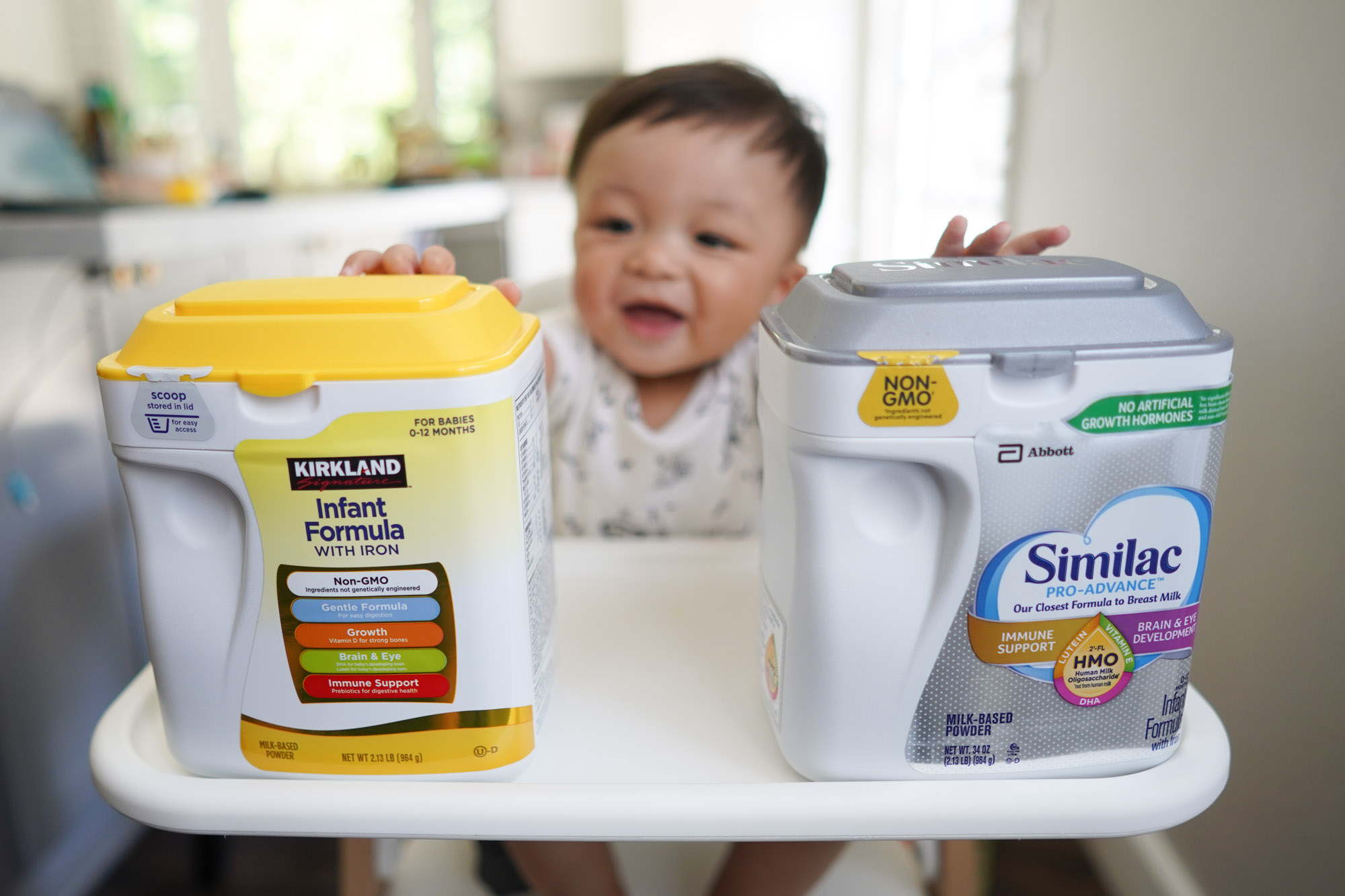
The FDA doesn’t publish a list of approved formula, though they do have specific rules about registration and what has to be in formula. According to this list maintained by the state of New Jersey, there are only four major FDA-registered manufacturers of formula in the U.S.: Abbot (Similac), Mead Johnson (Enfamil), Nestle (Gerber) and Perrigo (nearly every other brand).
Abbot Nutrition Brands makes Similac formula, which has been around since 1923. We strongly suspect that Abbot also makes the Kirkland Signature formula for Costco, since it’s so similar in every possible way. Note the identical packaging in the above photo, but also the absence of palm oil in the ingredient lists. Naturally, neither company will verify where Costco buys their product, and it is possible they could switch suppliers without warning.
Mead Johnson Nutrition has been around since 1903, and their Enfamil formula was launched in 1964. This is another key player in the brand-name formula race.
Nestle is one of the oldest and best-known formula manufacturers, though you won’t see the name on a bottle of formula in the U.S. Nestle acquired the Gerber baby food company in 2007, and they merged the two lines for sales in the U.S., while using the Nestle name in other parts of the world.
Pharmacist Henri Nestle designed a breast milk replacement in 1867, and his work on condensing milk built a multinational food company that has changed the way we buy chocolate, milk and even water.
Nestle was so aggressive in their worldwide marketing of formula in the 1970s that some called them baby killers, after mothers without the means to safely prepare formula were effectively tricked into decreasing their own breast milk supplies when they used free formula samples handed out by saleswomen dressed as nurses.
The distinctive feature of Gerber – Good Start formula is that it’s only available with added probiotics and broken-down, easier-to-digest protein, comparable to a “sensitive” or “gentle” formula from other brands.
Perrigo makes basically every other formula sold in the United States. They have an in-house brand, but you’ll have an easier time buying their products from other major retailers. Perrigo even runs a website called “storebrandformula.com” to ease concerns about buying “cheap” alternatives to brand-name “premium” formula.
It’s easy to spot Perrigo formula by the packaging once you know what to look for, and they’re now making formula for everyone from Amazon to Whole Foods to Target. Even the premium-priced Organic formula from Happy Baby, Earth’s Best Organic and Honest Company almost certainly came out of a Perrigo facility.
One other manufacturer, Prolacta, makes formula out of donated breast milk to help pre-term infants. It’s not commonly available and is classified separately by the FDA.
There are other major manufacturers of formula worldwide, but they have yet to register for sales in the U.S. under the conditions required by the FDA.
Best infant formula: Parent’s Choice
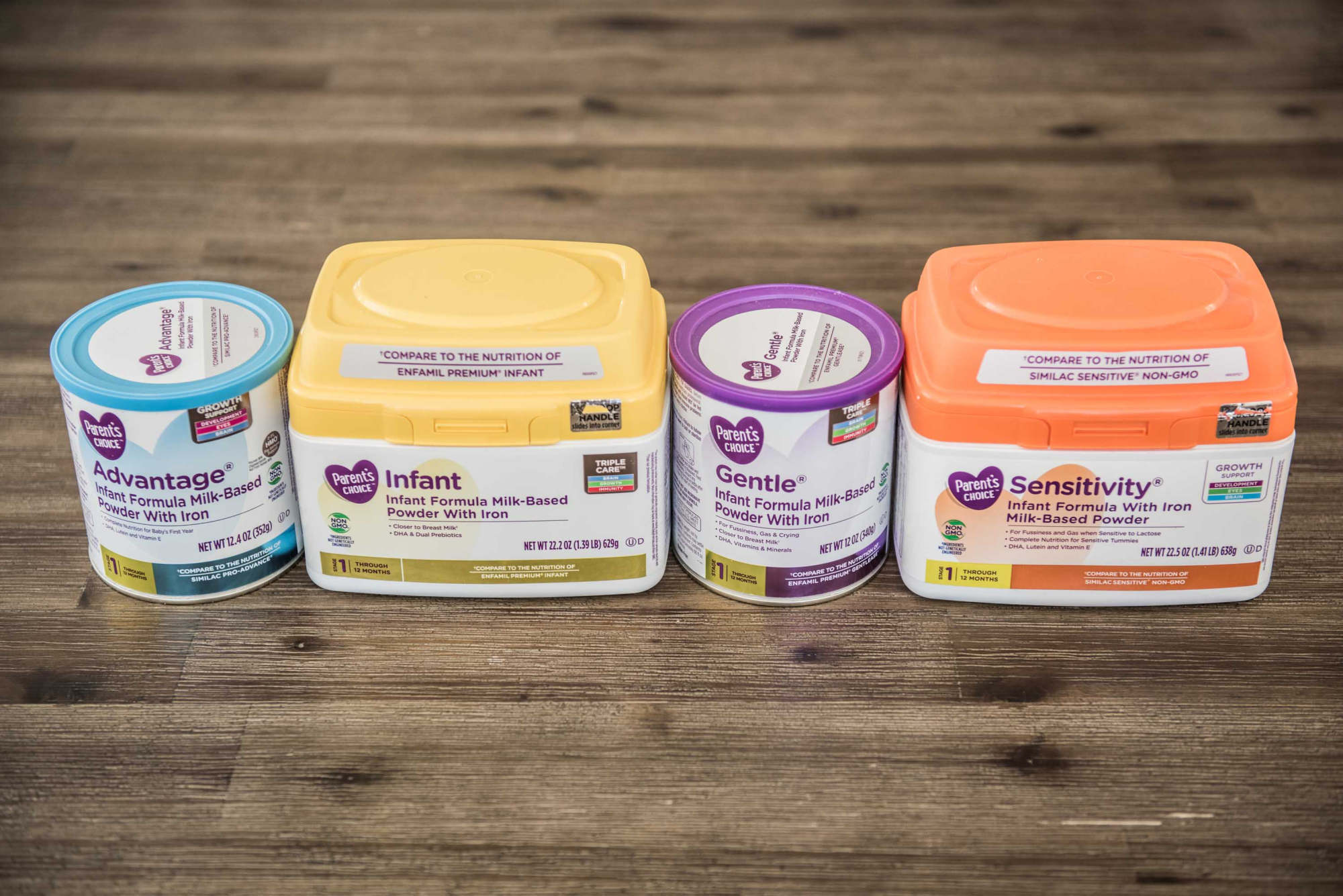
Parent’s Choice – Infant Formula is the store-brand formula available at Walmart, and it’s the formula you should probably try first.
Since infant formula is so strictly regulated in terms of nutrition, and since different babies will respond in different ways to formula, we stuck with price and availability as our key selection criteria for a top pick. You can get this formula shipped or pick it up in-store, and it’s almost always the least expensive.
It’s important to remember when comparison shopping that Perrigo makes almost every store-brand formula on the market and quite a few custom-label organic formula brands.
Now, we can’t say for certain that there will never be a difference between what Perrigo puts in a particular brand’s tub. For example, Honest Company specifically gets Perrigo to leave out the algae-derived DHA/RDA supplement that’s been the subject of minor controversy.
But the most significant differences are always going to be in protein types and sugar types offered for special dietary needs. Brands don’t matter much in picking one of these, since they all follow the same rules and offer the same lines of alternative blends to help you find something your baby can digest well.
Walmart sells the same six basic formula types that all the other full-line retailers do: a Similac clone, an Enfamil clone, a clone of the easy-digestion recipes from those brands, an organic formula and a dairy-free formula. They’re all certified and tested to be good formula.
The one distinction between Parent’s Choice formula and the competition that gave us pause is that the organic version of the formula uses corn syrup solids and maltodextrin, rather than lactose, for its sugar calories. Many parents are leery of corn syrup, but that one ingredient is probably behind the price difference between this and other organic brands.
If you’re willing to pay a little bit more to avoid retailers like Walmart and Target, our runner-up pick from Kirkland Signature is also a very good formula. But they only sell one type of formula, while Parent’s Choice has an entire lineup of options.
Recall update: In the summer of 2019, Perrigo recalled 23,388 tubs of Parent’s Choice – Advantage after metal was found in one specific batch. That’s worth noting, but it’s far less serious than, for example, the e. coli contamination outbreaks in lettuce that were announced in late 2018. Other manufacturers have issued formula recalls before, because mistakes happen in manufacturing and the recall system catches them. Premium brands are no less likely to be recalled, there have actually been more recalls for top-dollar formula than store brands. We want buyers to be informed about recalls, but we haven’t changed our opinions about the quality of Parent’s Choice.
Key takeaways:
- Parent’s Choice – Infant Formula is easy to find and the most affordable.
- If your baby has a special dietary need, you can probably find a suitable formula from Parent’s Choice.
- This formula is made in a certified facility that follows the same regulations as everyone else.
- Most other store-brand formula is likely to be identical to the Parent’s Choice equivalent.
- Walmart will typically ship formula to your door just as quickly as anyone else.
Palm-oil-free runner up: Kirkland Signature
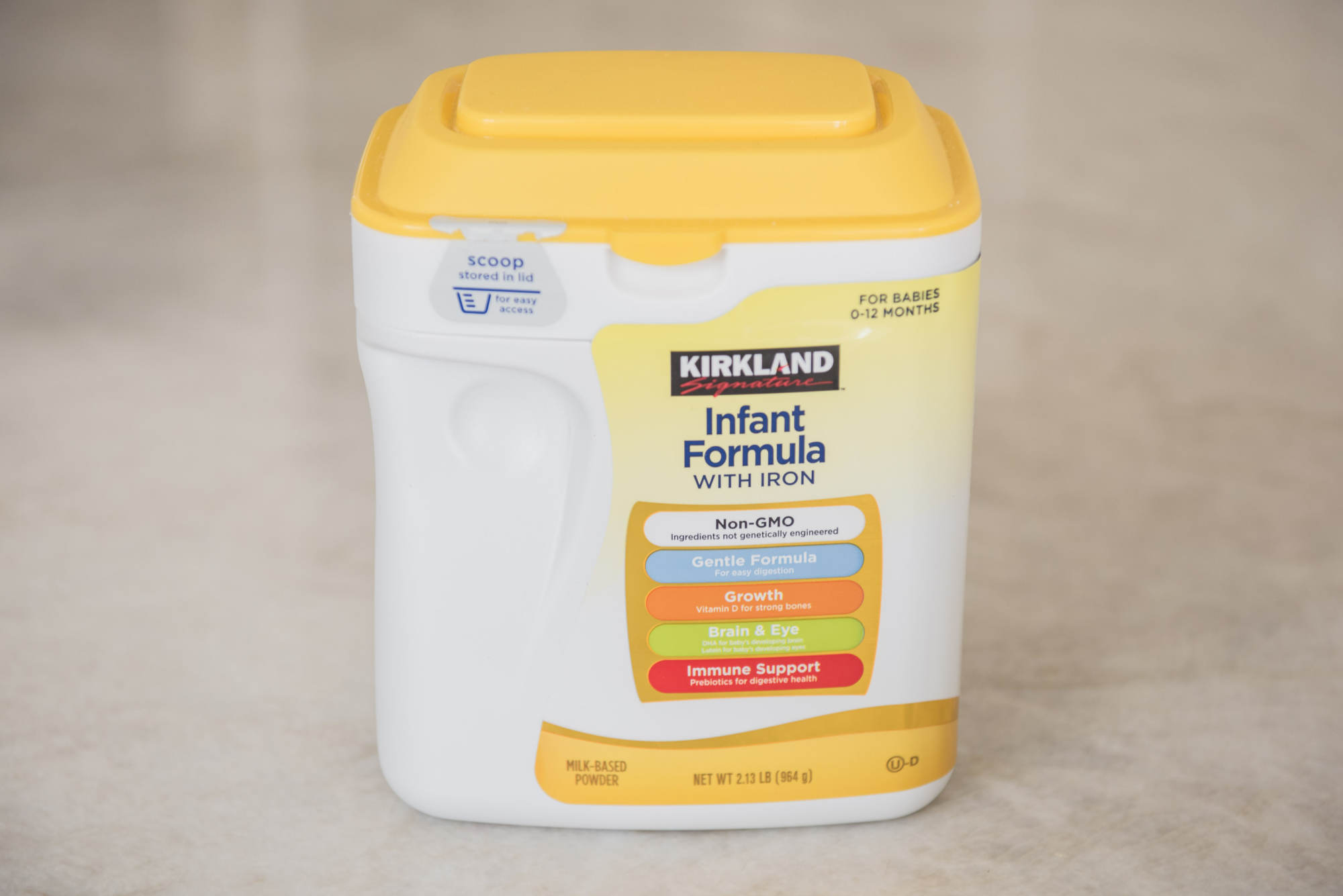
If you’ve tried another formula and your baby isn’t responding well, or if you’ve got a baby who needs extra calcium, Kirkland Signature – Infant Formula is a palm-oil-free blend that might be a better choice than the other store brands, for only slightly more per ounce.
Costco Wholesale’s Kirkland Signature line is probably the most prestigious store brand you can find, generally supplying top-shelf products at a substantial discount. When we found the Kirkland baby formula on the shelf one bay over from the Similac formula, we could hardly believe how similar they were. From the ingredients to the packaging, it’s certain that Costco’s store brand formula is made by Abbot, the company that makes Similac.
Kirkland formula has a very slightly different formulation from the full-price Similac – Pro Advance that it’s based on, but note that they’ve changed the serving size listed in the nutritional information to make it difficult to compare the two containers.
As with most formula, Kirkland Signature advertises specialized fat and sugar ingredients claimed to mimic breast milk more closely than the basic lactose and protein from processed cow milk.
The big difference on this ingredient list is one that’s starting to draw attention: Like Similac, Kirkland Signature formula doesn’t use palm oil to match the high ratio of palmitic-type fats found in breast milk, but uses coconut oil instead.
Palm oil is linked to reduced calcium absorption, so using it means other manufacturers have to add some extra calcium just to make up the difference. Palm oil is also associated with harder poop, so if you’re dealing with a constipated baby, Kirkland Signature is worth investigating.
What Costco doesn’t give is a full line of formula types. If you’re looking for formula with processed proteins for easier digestion, or if your baby is allergic to cow-milk proteins and you need dairy-free formula, you’ll need to buy another brand.
Of course, there’s also the cost of a Costco membership to consider—but over just one year, you’d save nearly $800 buying Kirkland signature formula instead of Similac. That difference covers a membership easily.
Key takeaways:
- Kirkland Signature – Infant Formula is a premium product at a great price.
- This formula doesn’t use palm oil, which is an ingredient many parents are choosing to avoid.
- Another brand with similar ingredients is Similac, which sells for nearly double the price.
- Kirkland only sells standard baby formula, no options for sensitive babies.
The best organic baby formula – Happy Baby
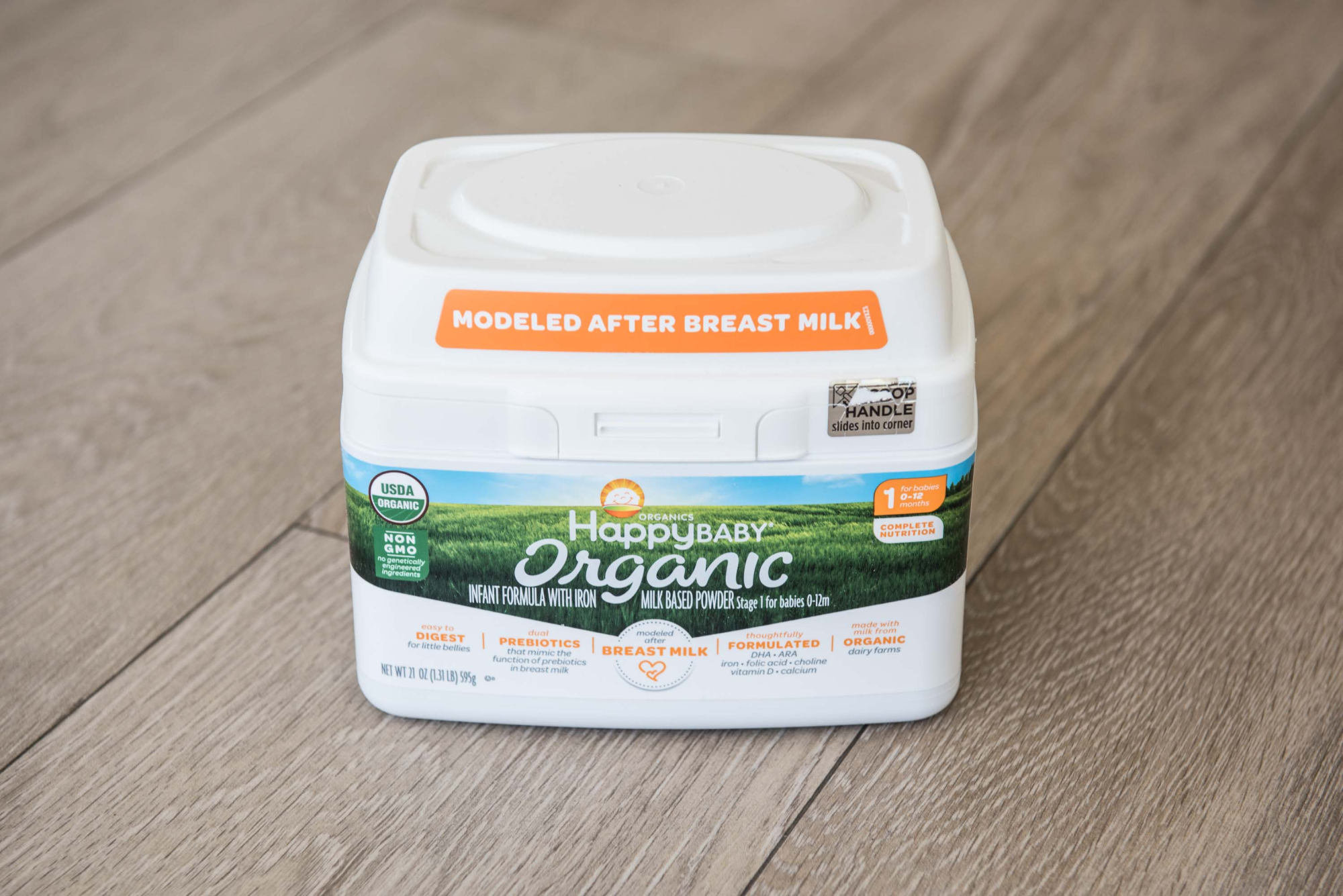
Among the organic formulas we tried, Happy Baby – Organic Infant Formula is corn-syrup free and slightly higher in gut-bacteria-nurturing prebiotics. The price isn’t the best, but it’s fairly easy to find in stores like Whole Foods.
Every single indication points to Perrigo as a manufacturer for Happy Baby formula, just like the store brands. From the taste of the formula to the special storage clip for the plastic scoop, Happy Baby formula is at least a sibling of other Perrigo-made organic brands.
Compared to Parent’s Choice – Organic Infant Formula, which costs 17 cents more per ounce than the regular stuff, Happy Baby will set you back about a dollar more per ounce. They’re subject to the same restrictions on where they can get ingredients and what can go into formula either way, but Happy Baby chose not to use corn syrup as a source for sugar, just organic lactose.
Organic formula is still a heavily processed product, so only trace amounts of synthetic pesticide or fertilizer could possibly show up in the final product. We don’t think organic formula is a good value, but if you’re committed to buying organic this is a good option.
Key takeaways:
- Happy Baby – Organic Infant Formula is like other Perrigo formula, but with certified organic ingredients.
- Slightly more prebiotic ingredients than other organic brands might help digestion.
- No corn syrup, just lactose for the calories your baby needs.
- There’s also a low-lactose and older-baby version of this formula available.
The other finalists we tested
Up & Up
Basically, everything we’ve said about Parent’s Choice formula above is also true of Up & Up – Infant Formula from Target. The descriptions of the prebiotic ingredients are slightly different, but equivalent.
The biggest difference we saw between Walmart and Target is that Walmart offers formula in packages of four tubs. Buying in bulk will save you 13 cents per ounce, which adds up to about $200 per year. Target runs promotions once in a while that bring the price in line with Walmart, but you’d have to wait and stock up when the time is right.
Similac
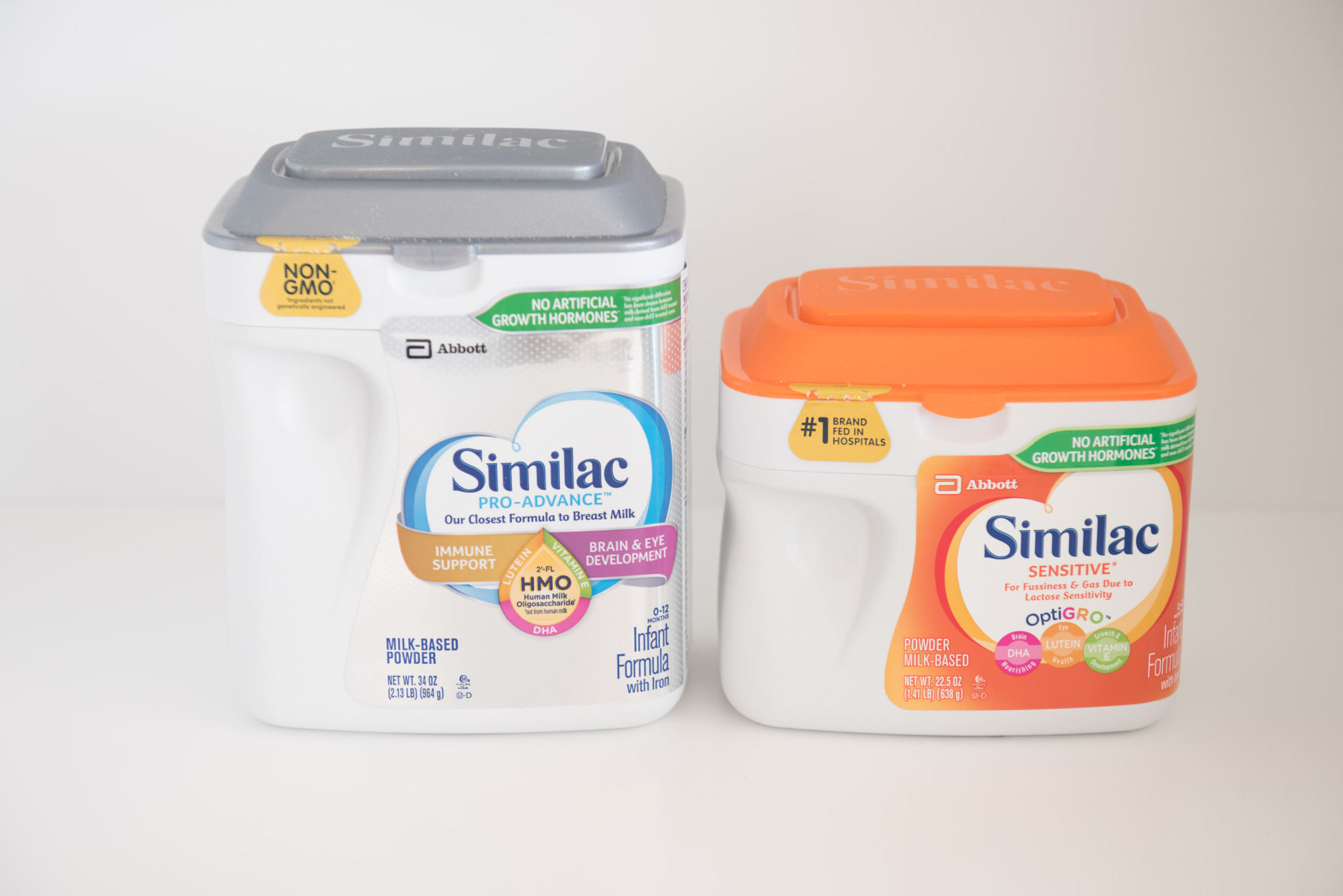
If you’re going to turn your nose up at store-brand formula and only consider the big-name baby formula brands despite all the regulated similarities, Similac – Pro-Advance is the brand that makes the most sense to us. They don’t use palm oil, which means better calcium absorption and possibly softer poop for your baby.
Similac – Advantage is so similar to the blend of ingredients used in Kirkland Signature that we find it hard to think of a reason to pay extra for the name brand. We tried the Similac – Pro-Advance, and it is very slightly different in texture and flavor because of an added prebiotic sugar called “Human Milk Oligosaccharide” or “HMO.” This is a sugar that isn’t digested; instead, it stays in your baby’s gut and feeds the beneficial bacteria that help digest food.
In our testing, we found that this formula was the first to smell slightly fishy and possibly rancid after we stored a few samples separately from the bigger containers for a few weeks. Definitely keep this stuff in a cool, dry place.
The price of Similac is just about double that of Parent’s Choice or Kirkland Signature, at $1.18 per ounce. Similac does sell a certified organic version of their formula, while Enfamil does not.
Enfamil
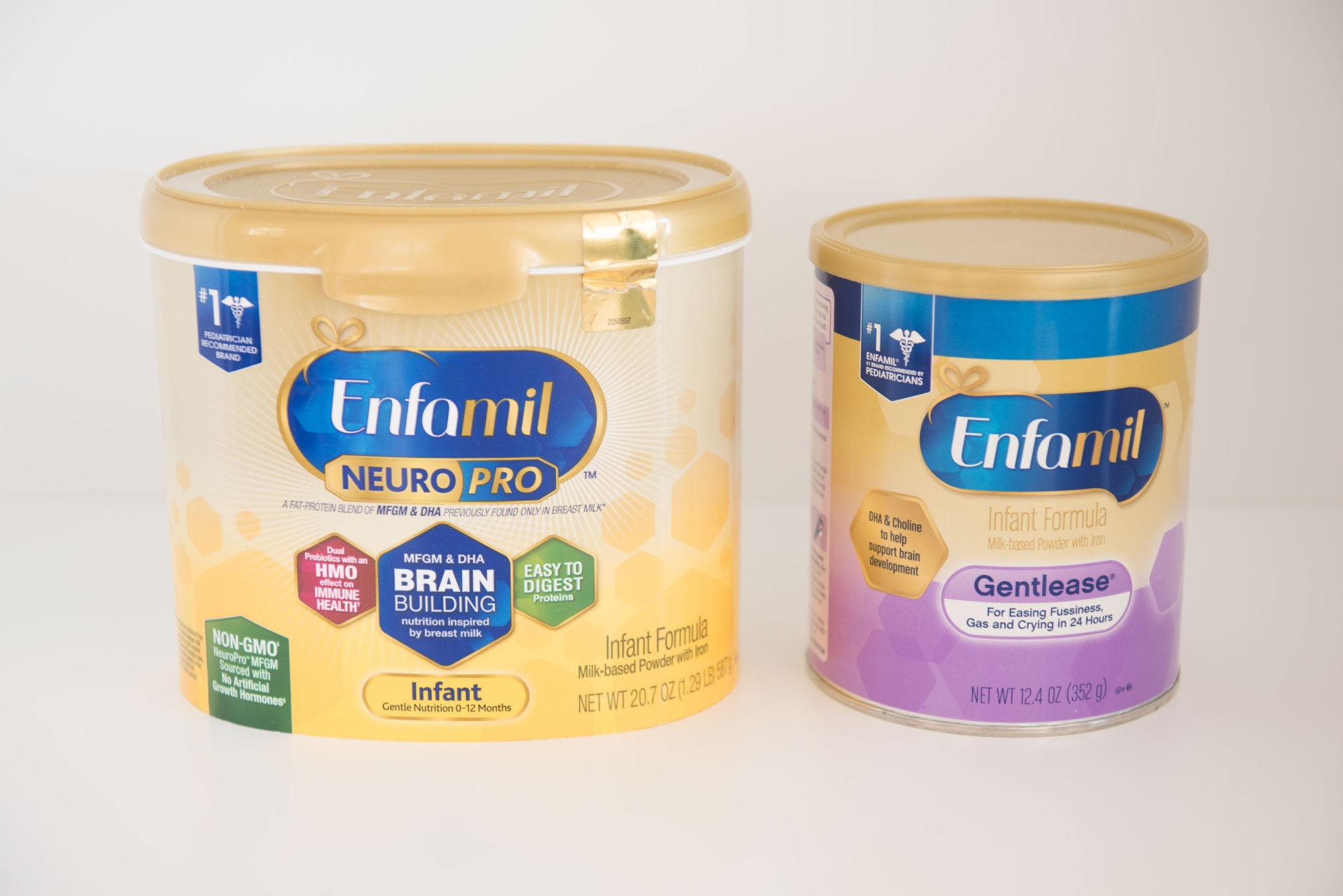
The other big-name player in the baby-formula world is Enfamil with their line of Neuro-Pro formula. Our test family has received Enfamil formula samples every time they had a new baby, so they must be working closely with obstetricians or hospitals to get access to new parents.
Enfamil’s primary distinction is a new type of fat they call “milk fat globule membrane” (“MGFM”). This fatty compound is supposed to make formula based on cow milk a little bit closer to human milk, and they’ve shown in some research that it might promote brain development better than regular formula. They got in trouble with advertising watchdogs for suggesting so boldly that Enfamil is better at growing brains, but it is a unique additive.
Enfamil’s NeuroPro blend is the most expensive formula we tested, at about $1.29 per ounce or $2,000 for a year’s supply.
Enfamil has a full line of options for babies with sensitive stomachs or allergies, but they don’t offer a certified organic product.
Earth’s Best
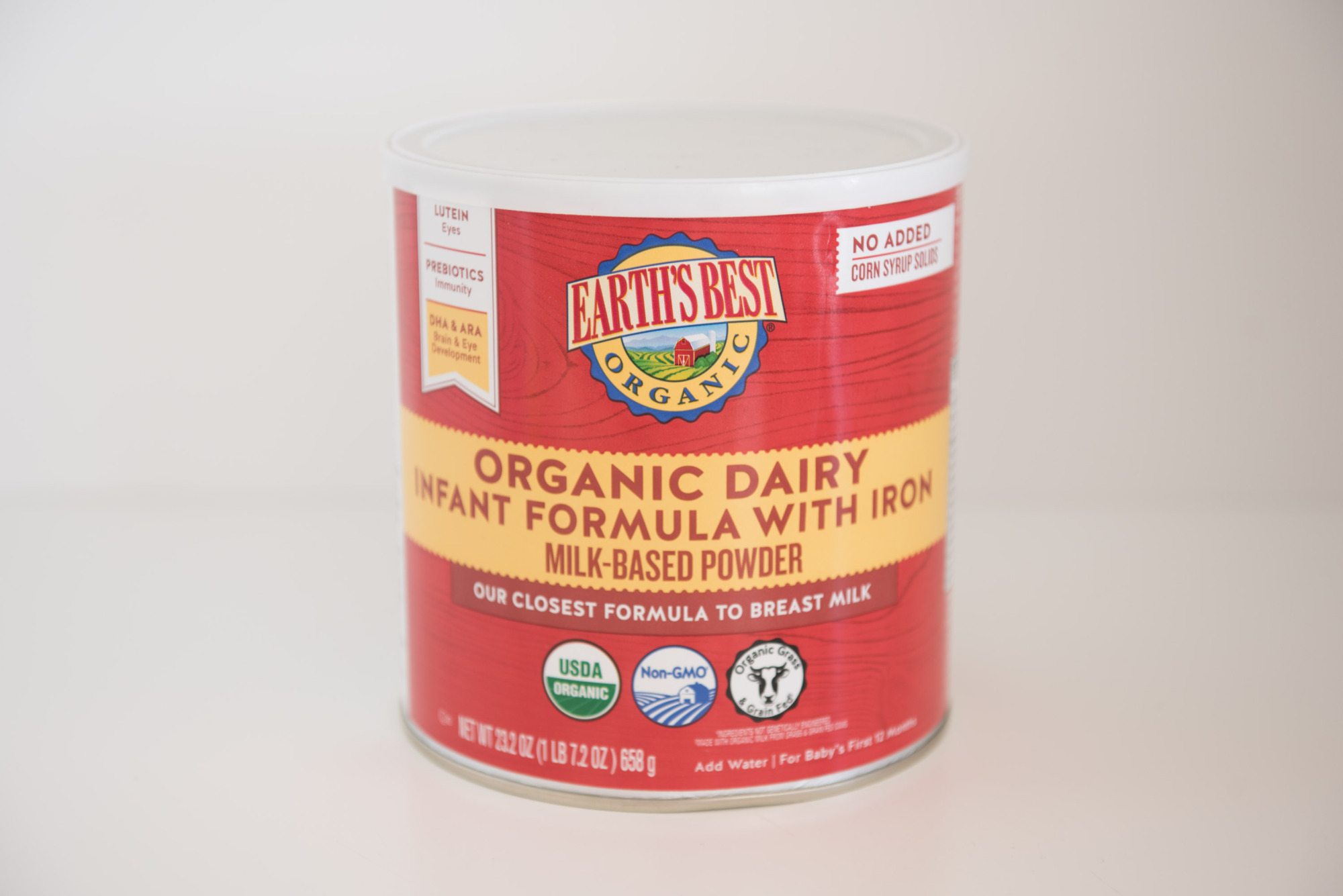
Earth’s Best – Organic Infant Formula is one of the oldest and best-known certified organic formula brands, and it’s only gotten better with time.
This certified organic baby formula used to be the least-expensive on the market. Since Parent’s Choice started offering a lower-lactose organic formula for a much lower price, and Happy Baby is offering a blend with more prebiotics for only 4 cents more per ounce, it’s hard to pick this as an overall winner.
Earth’s Best does sell a DHA-free version of this formula, but the price bump is insane: You pay an extra ten dollars per tin just to have a tiny amount of oil (and a few parts per billion of potential solvent exposure) left out. Most pediatricians strongly recommend you buy a formula with DHA, and supplement drops are a pain to deal with.
Kabrita – Toddler Formula
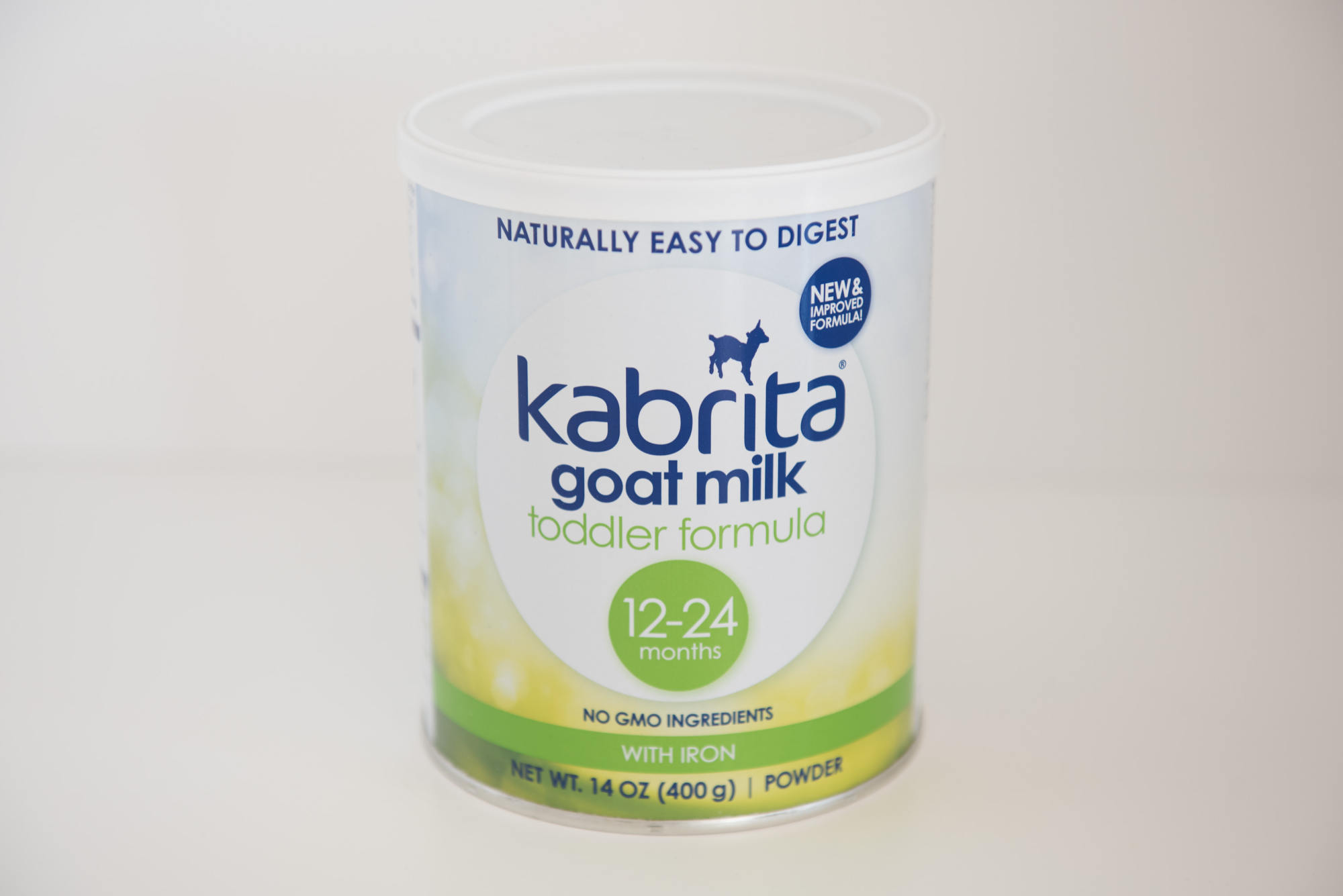
Kabrita – Toddler Formula is the only formula on our list that hasn’t been tested and approved for feeding infants by the FDA, so it can’t legally be sold as an infant formula. Hence the name “Toddler Formula.”
Kabrita has become a trendy option for infant formula all the same, and it’s the most-recommended goat-milk option. Here are a few points of interest for goat milk formula:
- Goat milk might not cause as much discomfort as cow milk if your baby is sensitive to casein proteins that are present in cow milk only. If you’re allergic to cow milk, though, you could also be allergic to goat milk.
- Dr. Sears recommends goat milk for some patients because it has smaller, easier-to-digest fat globules than cow milk.
Dr Young says in her post on goat milk that Kabrita adds more whey protein to make this formula closer to breast milk than most other European-import goat-milk formula blends on the market. The palm oil they use is also a special type that doesn’t reduce calcium availability.
Kabrita does include hexane-extracted DHA oils, which some parents would rather skip. Note that it’s not a certified organic product, either, so the soy oil in this formula was also probably extracted with the same solvents that make DHA controversial.
If you’re interested in buying a goat-milk-based formula, this is the one available to U.S. consumers. Other brands are sold for U.K. and European parents, but the legality and cost of importing formula make it hard to recommend when there are so many other options.
The bottom line
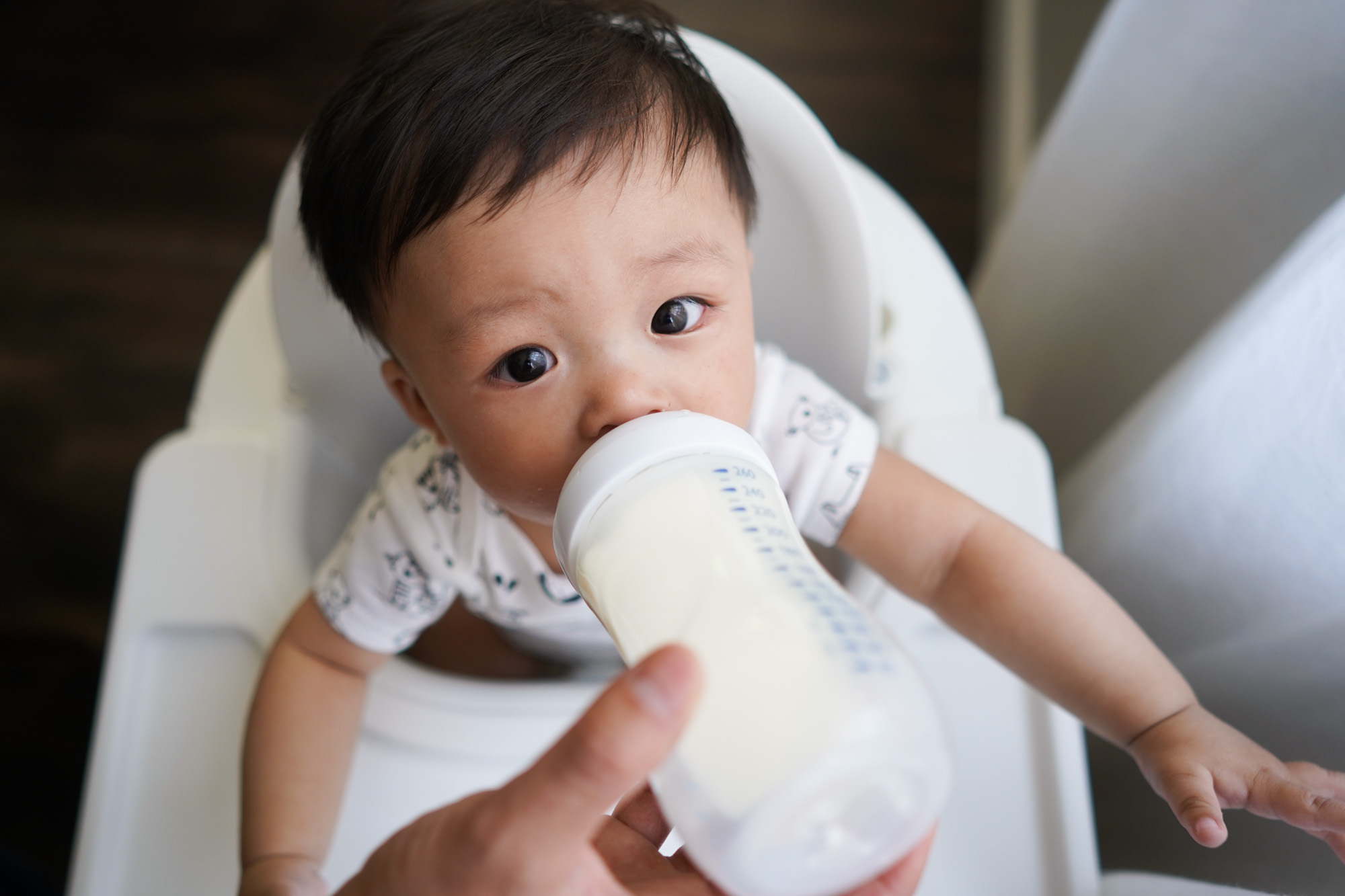
Formula is a product designed to provide all the nutrition that a baby needs to grow in the first year of life, so it’s important that you’re buying good formula.
The FDA tests and monitors the quality of infant formula closely, and if a product isn’t shown to help babies thrive it’s not allowed to be sold as baby formula. There’s no reason to doubt the safety or quality of baby formula sold in the United States.
We’ve picked the most affordable formula as the best infant formula overall: At just 50 cents per ounce, Parent’s Choice infant formula is a bargain. When you pick a product that you’re going to feed six times a day for a year, it’s nice to know that you’re not paying more than you need to.
If your baby is experiencing discomfort from indigestion or hard stools, there’s a full range of specialty alternative formula available from Parent’s Choice.
If you are having trouble finding a formula that works for your baby, talk to your pediatrician about what to try next. But we hope we’ve helped you understand at least some of the factors that separate one brand of formula from the rest.
Top Pick: Parent's Choice
This formula is made in the same factory as all the other bargain-priced formula, and it meets the same stringent regulations for nutrition and quality. If you want all of the very latest prebiotics and specialized fat molecules, you won't find them here. But it's a great formula at the best price.
More Reviews
The Best Soaps for Sensitive Skin
CeraVe - Hydrating Body Wash
The Best Digital Thermometers for Babies and Kids
iProven - DMT-511
JuJuBe - B.F.F.
Contours - Options Elite
Britax - B-Safe Ultra
LÍLLÉbaby - Complete All Seasons
Infant Optics - DXR-8
Nuk - Magic 360
The 7 Best White Noise Machines
ASTI - 'LectroFan
Honeywell - HEV620
23andMe


